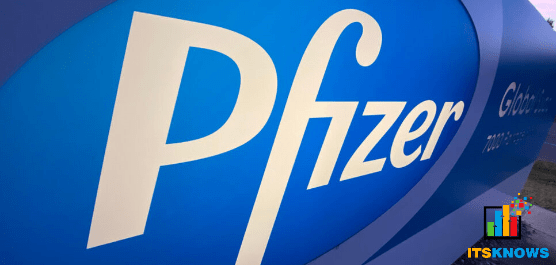You may be wondering “who owns Pfizer?” And how long between vaccines? This blog will answer these questions for you. For over 100 years, Pfizer Inc. has been the leading global biopharmaceutical company.
The company is known for its research and innovation in treating diseases such as cancer, heart disease, and infections, among many others.
As the world’s second-largest pharmaceutical company, it accounts for more than one-quarter of America’s prescription drug sales.
Who Owns Pfizer?
Pfizer is a US-based drug manufacturing company. On July 3, 1977, it merged with Pharmacia & Upjohn, a European pharmaceutical company with a market cap of $3.3 billion. As the leading global pharmaceutical company, Pfizer’s top priority is developing treatments for people with various illnesses, diseases, and injuries. In addition to expanding its treatments, the company also acts as a contract manufacturer for drug companies.
How Long is the Gap Between Pfizer Vaccines?
According to the World Health Organization, every vaccine has a “recirculation interval” from manufacture to disposal. This means that if a vaccine is not used for several months, and is discarded, then a vaccinated person may become infected.
First, let’s quickly run down the key players in the vaccine business. The largest companies are GSK, Novartis, Sanofi, Merck, Janssen, and Johnson & Johnson. These companies range in size from market capitalization of $116B (GSK), $68B (Novartis), $57B (J&J), and $43B (Merck) to $14B (Sanofi).
All these companies have a key role to play in the vaccine business. They are responsible for producing, packaging, and distributing vaccines. They also oversee the manufacturing process of the vaccines and their manufacturing costs. Companies like GSK, Novartis, and J&J are working so hard on their vaccines to make the vaccines more affordable for families around the world, thereby making vaccination a reality for all.
How to Get the Pfizer Vaccine
The National Vaccine Advisory Committee (NVAC) recently voted to approve the hepatitis B vaccine for adults ages 18 and older. This immunization is given in two doses, which is designed to last six months to a year. Hepatitis B, a virus, is responsible for an estimated 70 per cent of all liver cancer cases and can be spread from one person to another. This isn’t the only vaccine for hepatitis B. Other options include analgesics, antivirals, and suppressive medicines. If you don’t have health insurance, visit your nearest State Department of Health to find out how you can get a vaccine for Hepatitis B. For those of you who are interested, here’s more information about the hepatitis B vaccine.
The Importance of Vaccines
Each year, the medical community recommends a host of vaccines, including HPV, hepatitis, influenza, polio, and even the “mumps and rubella” combination vaccine. Some studies show vaccines to reduce the incidence of several diseases and save the lives of many others.
Get the facts on vaccines. Learn how your family can have the best chances for healthy living. Order Here.
As this list shows, the human body is vulnerable to many diseases. Vaccines help protect the body and enhance its disease resistance.
Who Owns Pfizer?
In a 2012 opinion piece, Forbes called Pfizer, the most important company you’ve never heard of, even though it may not be on your radar. It’s a fascinating story, which includes Warren Buffett’s investment in the company.
What is the Role of Pfizer?
Pfizer’s role in America’s health system is excellent: In addition to research and development of medicines for prevention, treatment, and cure of diseases, it is a world leader in manufacturing.
Between 2009 and 2014, the company produced 49 per cent of all pharmaceutical and medical products manufactured in the United States. About 80 per cent of the world’s white blood cell products are derived from their kidney research. Their next-generation mammary cells, a key component in breast cancer, are used to develop anti-cancer drugs and produce antibodies for research and development.
Pfizer employs about 75,000 people worldwide, with 14,500 of those jobs in the U.S.
Why is the Company so Huge?
First of all, since the company is privately held, there isn’t much publicly available information about the company. However, it was initially formed in 1914, and since then, the company has seen a lot of growth. Pfizer has been named to the Fortune 500 on forty-six occasions and has never been out of the top 10. As stated above, the company has used its success to help fund and support cancer research.
Current stock price
Pfizer’s most recent stock price (per Yahoo Finance) was $32.70 per share, which means the company is currently worth about $254 billion. Pfizer has seen some ups and downs over the years, and right now, the company’s stock price has been pretty steady.
Thanks For Reading our Article; Who Owns Pfizer?
Suppose you have any further questions regarding this article; Who Owns Pfizer? You can leave us a comment.
Our blog itsknows tells you who owns what to help you increase your awareness and general knowledge.
